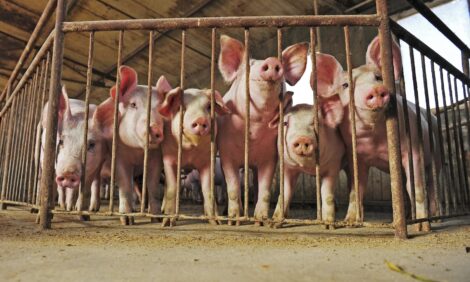



African swine fever stability in feed defined by new study
Infectious ASFV was most stable in soybean mealA recently published study, headed by Megan Niederwerder, associate director of the Swine Health Information Center, outlined the length of time African swine fever virus (ASFV) remains stable in feed.
The study, Stability of African swine fever virus in feed during environmental storage, was published earlier this week. The study's summary noted that ASFV is resistant to environmental degradation and maintains infectivity in feed ingredients exposed to transoceanic shipment conditions. It is also transmissible through the consumption of contaminated feed.
The objective of the study was to evaluate different feed types - complete feed, soybean meal and ground corncobs - exposed to ASFV Georgia 2007 at different storage temperatures (40°F, 68°F and 95°F) for up to 365 days.
The study found that ASFV DNA is highly stable and still detectable in almost all feed types.
"Infectious ASFV was most stable in soybean meal, maintaining infectivity for at least 112 days at 40°F, at least 21 days at 68°F, and at least 7 days at 95°F," said the study's summary.
The results of the study will help define risk of ASFV introduction and transmission through feed ingredients.








